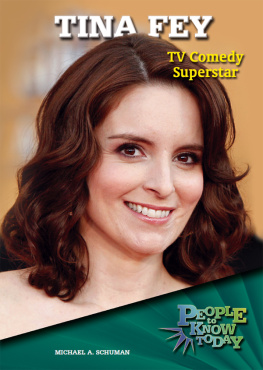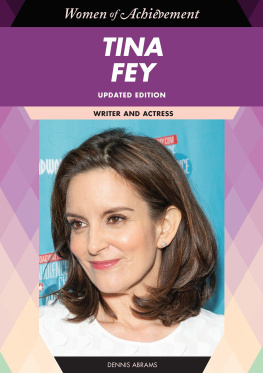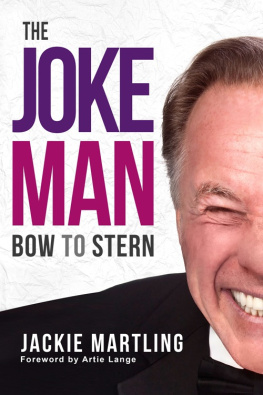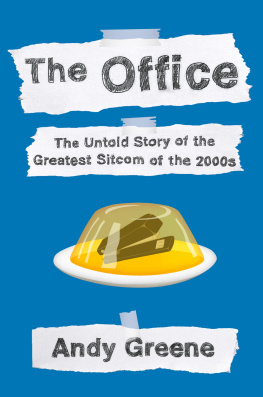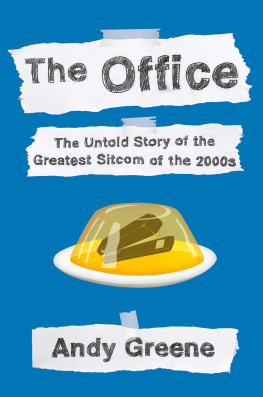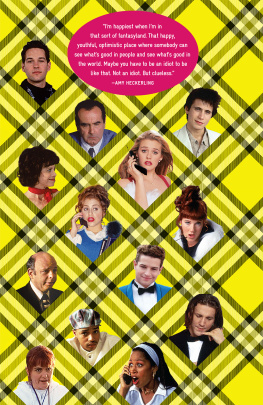Contents
Guide
Page List


Copyright 2021 Michael Roe
Cover 2021 Abrams
Published in 2021 by Abrams Press, an imprint of ABRAMS. All rights reserved. No portion of this book may be reproduced, stored in a retrieval system, or transmitted in any form or by any means, mechanical, electronic, photocopying, recording, or otherwise, without written permission from the publisher.
Library of Congress Control Number: 2021933484
ISBN: 978-1-4197-5044-1
eISBN: 978-1-64700-109-4
Abrams books are available at special discounts when purchased in quantity for premiums and promotions as well as fundraising or educational use. Special editions can also be created to specification. For details, contact specialsales@abramsbooks.com or the address below.
Abrams Press is a registered trademark of Harry N. Abrams, Inc.

ABRAMS The Art of Books
195 Broadway, New York, NY 10007
abramsbooks.com
To Kristiana, my spectacular wife.
Thank you for being the Liz to my Criss
(and thankfully not a Hazel).
Contents
Introduction
Seven Seasons of Super-Specific Weirdness
Season 1 (200607)
30 Rock vs. Studio 60
Season 2 (200708)
The Strike
Season 3 (200809)
Tinas Doppelgnger Celebrity
Season 4 (200910)
Selling NBC, a New Cast Member, and the Quest for the EGOT
Season 5 (201011)
Breaking the Format
Season 6 (2012)
Jack vs. North Korea
Season 7 (201213)
Happy-ish Endings
30 Rocks Legacy
From Unbreakable Kimmy Schmidt to Mr. Mayor
INTRODUCTION
Seven Seasons of Super-Specific Weirdness
30 Rock was the show that made Saturday Night Live head writer Tina Fey a bona fide star. It was always a ratings underdog, but one that fought its way into the hearts of viewers season after season. Coming on the air after the end of Friends, the show embodied an idea that was revolutionary at the time: it was better to be funny than to make an audience swoon or to tie characters up in romantic entanglements.
What set 30 Rock apart, besides Tina Feys distinctive view on the world, was the shows obsession with hyper-specific jokesfrom Liz Lemons much-memed night cheese to cutaway music video earworms proclaiming, Its Never Too Late for Now. In the comedy world, those are often called one- or two-percentersthe jokes that will only work for 1 or 2 percent of the people out there, but for that audience, the jokes really work. When youre in that group, you feel like theres a show thats finally talking to you, just you, for a momentthat 2 percent was enough to earn the show seven seasons and numerous awards.
But with 30 Rock, it wasnt just the type of jokes, it was the pace. The show never paused to wait for you to catch up. It would continue throwing jokes at you so fast that even if you missed what a few of them were going for, youd still be laughing from the one before that.
Its an approach to comedy that wasnt usually done in sitcoms, which had traditionally been shot with a multiple-camera setup, filmed before a live audience. Those shows had to make sure their setups and punchlines were so super clear that every member of the audience could catch them, then pause for extended laughter, the kind that makes people feel like they arent alone. The Simpsons, since it was animated and had no studio audience or laugh track, was able to fit in more jokesbut it took mainstream TV a long time to catch on to the possibilities dropping the laugh track could bring.
Where 30 Rocks contemporary The Office used the lack of an audience to allow awkwardness to hang in the air, 30 Rock pulled you in. This was not a lie back and enjoy yourself showthis was a you better sit on the front of your couch or you will miss twelve amazing jokes that you never saw coming show. 30 Rock was part of a generation of single-camera sitcoms that popularized a denser joke format, and it was the most packed of them all.
The show would let Fey deliver commentary about her time on SNL, network execs, and everything else she had to deal with as a creative person in comedy at a major TV network. Liz Lemon became the ultra-relatable nerd whod won at life, the underdog who blossomed and finally achieved everything she wanted. She was someone who got ahead because she worked hard and cared a lot about what she was doing. It reflected Tinas intense drive, and her awkwardness made all those viewers whod felt just as awkward over the yearswhich is basically everyonelatch onto her.
This book is about how 30 Rock survived tough competition and a changing network TV landscape year after year, the true stories and behind-the-scenes battles that often turned into plotlines, and how it found its voice while becoming a critical favorite and beloved cult classic. It will explore the castings that almost were, and glimpse awkward and heartfelt moments between cast and crew, drawn together in their quest to create top-notch comedy. It tells the story of 30 Rock primarily based on nearly fifty interviews I conducted with members of the shows cast, guest stars, writers, directors, producers, and crew, as well as TV critics, personal assistants, and more, as I investigated what was behind the jokes that made me laugh so hard my face hurt. My extensive research also includes material from archival interviews I conducted with members of the 30 Rock family, DVD commentary, books, and other published interviews. I used to write and perform sketch comedy at several Los Angeles theaters, so I apply my own experience with writing jokes to examine how next-level the team behind 30 Rock really was. And Ill be sharing stories throughout in the words of those who lived it so that you can feel what it was like to be a part of that moment. (Some quotes have been edited for conciseness and/or clarity.)
Congratulations! Youre about to take a tour through 30 Rock. Im your Kenneth the Page (but moderately more self-aware and less likely to tell you youre condemned to eternal hellfire).
Ready? Lets go.
Creating the 30 Rock Pilot
In 2002, Tina Fey was looking for a new project. Shed made a name as the first woman to become head writer of Saturday Night Live, as well as the first woman to anchor Weekend Update since the early eighties. She was proving all the idiots who said that women arent funny wrong by writing jokes ten times funnier than those of her male colleagues, leading an SNL renaissance.
But while she was well liked by comedy fans, Fey wasnt quite a star yet. She hadnt made her impact outside of late-night comedy, just beginning to develop the script that would become the feature comedy Mean Girls, and she was working to figure out how to graduate out of SNL to her own projects. This was during the era where she said herself how bad she was in sketches on SNL, including saying so in an actual SNL sketch, long before her breakout performance as Sarah Palin in 2008.

